
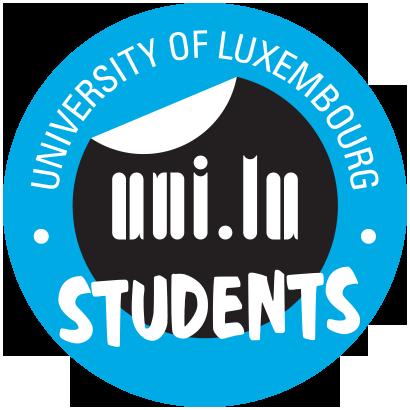
ROUXStudentMagazineIssue1 17thNovember 2022
ROUX Student Magazine
EST 2022
Issue 1, 17th November 2022
Luxembourg
Team:
Chief editor: Ignota de Bona Ventura
ASSA Michael Anthony — analogue photographer


GAUBE Valère — writer; universal dilettante
SHATOKHINA Kristina — woman of vision; high priestess; mother
JACQUEMIN Jennifer — writer; gamer; chef de cuisine
KUDRYAVTSEVA Sofiya — co-founder MILLER Sofia — token ginger; artist; cartoonist
MOUZAKITI Eleni — writer; researcher; interview conducteur; purveyor of dreams
MPOYI Lorina — writer; researcher; interview conducteur
SALT Kieran Alexander — co-founder; producer of barely coherent ramblings
GARCIA CUENCA Elisa — type C Concept designer boss baby sofiya_10billion — film and multimedia expert; has written a poem


STATSENKO Yelyzaveta — photographer; social media manager
TAJTI Zoltan — coffee vessel; founder; father
RIIKONEN Tuomas Samuli, writer of two articles and one of the co-founders of the magazine, has undertaken the respectable task of representing students at the Student Delegation. To avoid conflict of interest, he is not with the magazine anymore. We know his energy and ambitions will serve us students well. We value his contribution to the magazine greatly, and we thank him for his efforts in kicking our endeavour off. Best of luck, Sam. During our endeavour we received a lot of selfless support and help from the Office of Student Life; without them, we could not have done our job. We are immensely thankful for that. An especially huge shoutout goes to Veerle Waterplas for being there for us since the very beginning.
Unless otherwise noted, all images in the magazine are public domain as described in the Creative Commons CC0-1.0 Universal Public Domain Dedication licence, and fall under no copyright obligations. Direct all copyright claims to: paper.roux@gmail.com
Available on all four campuses of the University of Luxembourg. Look for us at receptions and student lounges!
For digital issues go to: https://issuu.com/rouxmagazine Submissions: paper.roux@gmail.com
Come, join our team! We are always happy to have writers, graphic designers, poets, photographers, singers, carpenters, aquari um translucidezers, and ladybug-dot-painters amongst our ranks!
@roux.magazine paper.roux@gmail.com
Font on pages 28-29 is OpenDyslexic by Abbie Gonzalez
Credit page photo (b&w): Michael Anthony Assa
Campus history photos: Christophe Knebeler & Denis Scuto
Cover: students of the university, courtesy of Student Lounge :)
©ROUX Student Magazine
All rights reserved
Hello, reader! What you are holding in your hands now is the first issue of ROUX, the first and only magazine made by students for students, at the University of Luxembourg. We are auton omous, independent, and represent no one but ourselves. Our magazine is founded on integrity, open mindedness and the firm belief in the importance of critical thinking, and we pledge to adhere to these values ferociously. A magazine, we call it, but what we create is more than that. ROUX is a statement, an imprint of the creative forces of our student life, a cultural object of its time, and a fluid communica tion between students and their academic and non-academic surroundings. But enough of the boring stuff. Go to our centre piece on page 14, and share our joy, which we hope will bring equal joy to you. We have arrived, and plan to stay. See you all around! Zoltan Tajti
CONTENTS
Founder,
2 How did we end up Here of all Places? History of Campus Belval 6 Student Voices Student Housing Issues 10 We are all madmen here… Mental Health of Students 14 A Dithyramb for a Manifesto Overture We are here, folks! Come, get us! 16 Mutual Recognition on Campus We Await Your Submissions 18 Non-texts-in-Philosophy Essay on Essay 20 Is Going to Film School Worth the Trouble? Essay on Film School Experience 22 Fear Can’t Kill You, But… Resident Evil 2 Remake A Review 24 Penne a la Vodka Easy Recipe 26 Virgile, Bucoliques, 2ème églogue Original French Translation 28 For the Better Future Original Poem ROUX 1
and proud member of the very first editorial team. They have built all this from nothing, with the sheer power of will, talent, and hard work. My gratitude is endless. Now enjoy.
How did we end up here of all places?
by Kieran Salt
Often whenever I meet someone new at the university, after the basic introductions are fin ished one of us will usually turn to the other and say something along the lines of “So, how come you ended up in Luxembourg?” The answers to this question vary so much from person to person that it never seems like a mere formality; from tuition fees, ease of travel, language learning opportunities or simply being from Luxembourg and wanting to study from home.
The question posed in the title, and hopeful ly the answers given are along a similar line. Unfortunately for me – and perhaps rather fortunately for those of you reading this – the question is not a philosophical one, rather it is just a snapshot of the recent history of the university and why, of all places, Belval was chosen as the site for the majority of the university to operate out of. As well as some speculation on my part of where this may leave us in the future.
As I’m sure even the most unobservant stu dent is well aware, the site of the university used to be a steel mill, which finally shut down production in 1997 after reducing its capacity over the previous four years. As a result of this, much of the economy in and around Belval diminished and the site was chosen as one of four “reclamation proj ects’’ by the government at the time and a new “public-private partnership” Agora was set up to oversee this project in 2000. While the public element of the new com pany was composed of various government officials, the private side was (and is) essen tially run by the ex-steel baron who owned and does in part still own the site where the Belval campus would eventually be built. This resulted in the board of Agora being composed of four members of the private sector, four government officials and one representative from the commune of Esch and one from Sanem.
Now, it is important to remember that the university did not exist in any capacity until 2003 when several research institutes in the city merged into the beginnings of the university we know today. This means that when Agora first began considering what to do with the old steel mills in Belval they, for better or worse, had no idea what it would actually become. In fact, the initial plan was to create an “environment for research” without any students, or indeed a university at all. Partly driven by the idea in fashion at the time that Luxembourgish students would go to university abroad. Bringing back expertise from the rest of Europe and beyond


HISTORY OF CAMPUS BELVAL 2
2002 Masterplan
Belvalbabyx
upon completing their degrees.
The project of revitalising Belval unsurpris ingly took a long time, from the myriad internal difficulties in maintaining a longterm project across changes of government, the arduous process of decontaminating the soil at the site – is it any wonder most of the trees are in giant plant pots? – preserving and burnishing the steel kilns, the list goes on… And in that time a great many things changed including the inception of the brand new “Université du Luxembourg” at the then campus in Limpertsberg. It was with this decision to form an actual university that the project in Belval changed from sim ply a research centre to the pale imitation of a campus that we know and love today. This decision, for better or worse, is one that has shaped the experiences of not only those stu dents who actually study in Belval, but also
all of those who have to commute to Kirch berg or Limpertsberg from there. However, it took several more years for the idea of Belval not just as a research centre, but as a university to take shape. Initially the idea was that the university would draw inspiration from other new universities in the surrounding areas, specifically Leuven-laNeuve with the aim of drawing in roughly 30,000 students – obviously that has not happened yet, and the number of students has plateaued at around 6-7000 in recent years. According to Rolf Tarrah, the rector at the time, there were a number of mis communications between Agora and the university as it existed before Belval campus in which Agora wanted to know student numbers for the purpose of university capac ity, which the university could not provide without knowing the available capacities

ROUX 3
and so on… Furthermore, the same rector also expressed concerns at the conference “let’s talk about Belval” about the prospects of a fulfilling and well rounded student-life in Belval considering the small number of students, concerns which in my modest and personal opinion seem fairly well founded.
However, Etienne Router – the former pres ident of Agora – claimed that the restoration project was a huge success, thanks in part to both governmental and private investment as well as ongoing support for the project across changes of government. The aims of the project crucially not being limited to building a functioning university but as part of a larger project of decentralising Luxem bourg by creating multiple “living and work ing hubs” throughout the country for certain industries, hence the moniker “Cité des Sci ences”. With the end goals being to provide jobs and investments in these underdevel oped ex-industrial areas, limit the exponen

tial increases in housing costs in and around Luxembourg City by providing alternate places to work, and finally to reduce the congestion in the city and commute times in genera for people working in Luxembourg. In all of this they may well have succeeded, but the campus starts to make a little more sense when considered as a means to an end in all of this rather than the end itself.
A further issue that was raised both in the conference and in conversation with oth er students is the issue of exactly who the university is owned by. Part of the problem surrounding this is that there are three major players involved. The university itself, Fonds Belval, and Agora. The university for the time being does not own any of the campus or buildings on it, instead renting them from and also paying for maintenance and upkeep through Fonds Belval. While this may seem bizarre to some, myself included, according to Mr. Tarrah whether or not a university
hurry up Delhaize closes like in 30 min! at this point, I don’t care anymore 4 HISTORY OF CAMPUS BELVAL
guys how do I get to SEVE on 5th floor if the escalator goes only up to 4th???
owns the buildings it operates out of has little effect on the quality of the university itself and it is not altogether uncommon for universities to have arrangements like this throughout the world. As such, the problem of ownership was not a large focus for him during his time as rector, so much as the state of the campus itself and the moving of most departments from the city. Agora on the other hand, owns the land itself and still oversees the ongoing development projects in and around the campus – with the cur rent plan being to buy out what remains of the private sector influence within Agora by 2030, bringing the land back into public ownership.
Now what comes next is little more than speculation on my part. However, it doesn’t seem altogether unlikely that due to both moving the majority of the university from the city, and the fact that the initial plan for the Belval reclamation project was not to build a university but rather a research cen tre has in some way impacted or exacerbat ed the issues surrounding student housing. As such, a lot of the housing developments in the area are aimed at families and first-

time buyers rather than housing students due to the expected increase in researchers and other office jobs as a result of the project. For example, the residential projects between Belval and Belvaux contain only one student residence in what has essentially become a brand new small town of apartment blocks. Furthermore, the move from the city to Belval campus has meant the loss of both opportu nities for students to feasibly rent in the city as well as the small amount of accommo dation that the university had there – due to issues with refurbishment, flooding as well as it being sold off.
So, while I agree with Mr. Reuter that the restoration project in Belval was a success, this does not mean that the project of build ing the university itself was entirely success ful. And going into the future, with student life still being rather quiet due to numbers of students plateauing around 6-7000 and the issues already faced with shortages of stu dent accommodation now. It does seem that without resolving the issue the university will not grow much larger than this while the rest of Belval may start to dwarf it in the years to come.
ROUX 5
Finding affordable housing as a student can prove to be a great challenge for anyone, especially for international students that prepare to leave their country and start a new life in a place they barely know. However, when the country that they move to is facing several problems when it comes to providing afford able housing to its students then things can get even more difficult and this is exactly the situation in the University of Luxembourg today.
For most students, when they plan to move to Luxembourg, the pro cess seems blissfully simple. Apply for a room in a university residence through the respective website. However, due to high demand not all requests will be accepted and the lucky ones, they might still have to come to terms with several condi tions that are not going to be opti mal for their particular situations.
HOUSING ISSUE

Student Voices
“I study in Kirchberg”, Ovidiu, 24, says. “However, I was given a room in Esch-sur Alzette. It was the only available one.” The daily commute according to his experience has not been easy. During morning and afternoon traffic, one can expect around 1.5 hours commute from Esch to Kirchberg Campus. How ever, that is the reality for many of the students that have not been lucky enough to secure a room in one of the University residences in Luxembourg city. Most of the time, you need to be prepared to spend around 3 hours in public transport each day, especially at rush hours.
STUDENT HOUSING ISSUES 6
In Anna’s case, finding accommodation has been a challenge until the last days before her flight to Luxembourg. “I came to Luxembourg to study along with my husband. We were both accepted into Master programs and decided to move here for a new start and to embark on a new academic journey.” However, they soon realized that being able to find ac commodation together was much hard er than it seemed. “At first, they told us that even though we are both students, they cannot guarantee us a studio or at least rooms in the same residence.” Final ly, they received an offer for a studio near their campus but that was only three days before they arrived in the country. “It was a stressful time for us, and we had to tolerate a lot of pressure just before moving to a new country we knew noth ing about.”
In 2020 and 2021, students in the whole world, but also in Luxembourg, had to face a unique and unprecedented situa tion of a pandemic, a situation that for
many meant putting their plans and studies on hold for several semesters. In fact, numerous students decided to pro long their studies with extra semesters in order to cover up for the lost time or the difficulties the pandemic and online classes presented them with.
However, already in March 2022 the University of Luxembourg, in order to provide a solution to the housing issue of incoming students, introduced a new policy regarding the maximum amount of staying in a room or studio in their residences. More specifically, for stu dents following a Bachelor program the maximum duration would be 36 months while for Master students it would be 24 months. And while that seemed to relieve the stress for the University on an administrative level, a lot of students found themselves struggling with having to relocate in the span of a few months, if they wanted to continue their studies.

ROUX
7
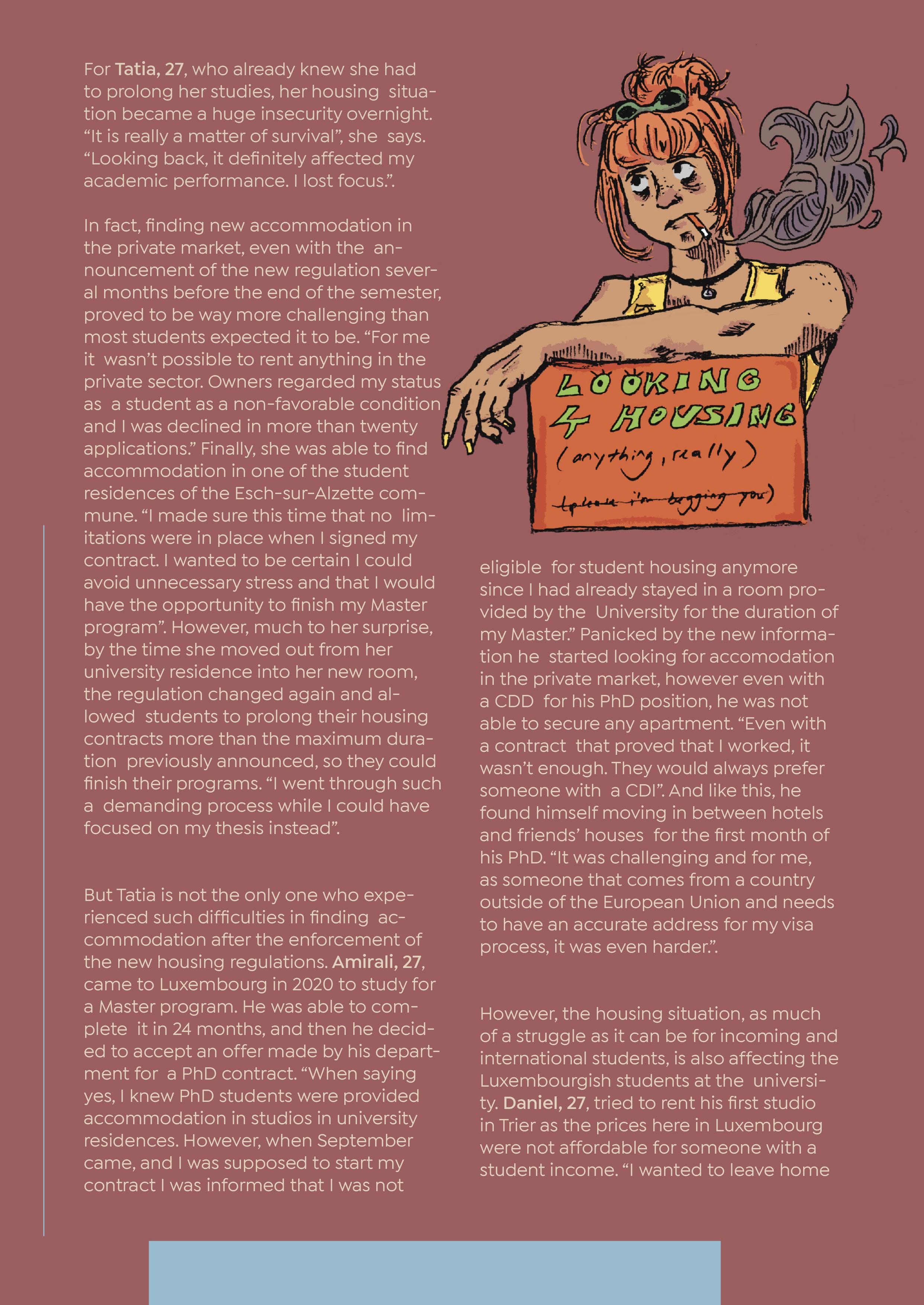
8 STUDENT HOUSING ISSUES
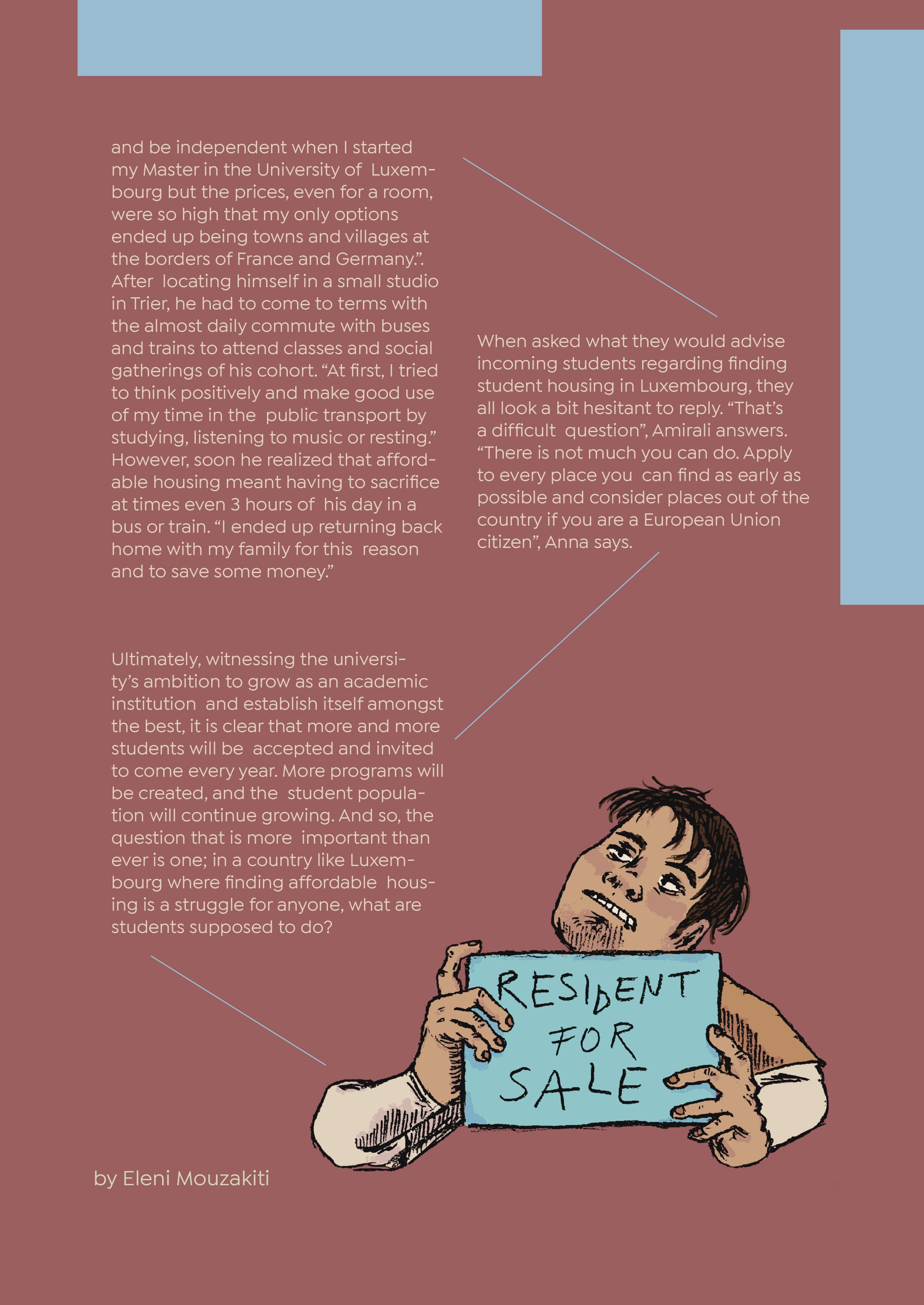
ROUX 9
On Monday, October 10, 2022, the University of Luxembourg organised an event in honour of the international “Mental Health Day” and the “National Mental Health Week” celebrated an nually in Luxembourg.
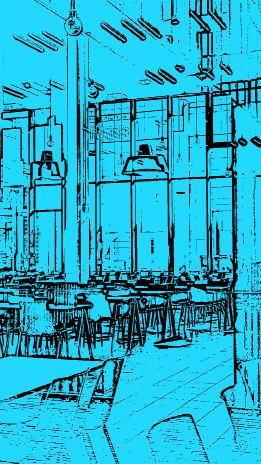


This year, the University offered information stands, a flow table with origamis and mandalas, guided meditation, Qi Gong, and yoga classes for students


to express themselves and to raise awareness of mental health issues.
The Mental Health Day 2022 was not ignored by the Student Magazine ROUX either as we had some conversations with the representative staff on the spot and engaged in an online brainstorming session with a few students to gain inspirati on for writing this article about mental wellbeing and the care taking of others.
MENTAL HELP
10 MENTAL HEALTH OF STUDENTS
W e frequently ask each other, even irritatingly often, “how are you?” Sometimes a sudden, occ asional urge to respond “why do you even care?” just goes to show how aggravating that question can be.
Communicating our men tal states to others is not always an easy task. When I’m not in the mood, it feels intrusive when someone is trying to access my private headspace. Personalities also differ in terms of what we want to give out to other people. And quite frankly, we are not that transparent to ourselves in our mental life either.

But how often do you pau se and inquire about yourself by asking, “how am I doing?” After all, how am I supposed to truly answer the question “how are you” to anyone, if I don’t even know the answer myself? That’s why a daily check-in with ourselves is a good place to start. Knowing and un derstanding ourselves helps us to better understand others as well.
fluctuate between emotional states during the day more than a stoic type. However, since we are also experts at masking our emotions, the real difficulties arise in noticing the difference between a person who’s honestly having a good day from a person who’s honestly having a rough day. Equally hard is recognizing the differen ce between a person who’s just having a rough day from a person who’s actually having a rough life

I think there is no wrong time to express your worry about someo ne as long as you are genuine about it. We tend to check-in on people on regular intervals, be cause life can be devastating at times. Your psyche is on a tough trial throughout your whole life, so better take a really good care of your incredible mind. And by that I mean a genuine, mutual care of one another to show that you do really matter to me .

”
A daily check-in with ourselves is a good place to start. Knowing and understanding ourselves helps us to better understand others as well. ”
ROUX ROUX 11
Online Survey
How are you?
I n the questions describing the mental state and the reasons for this condition, the res pondents answered different causes. One-half responded that they feel relaxed in their everyday life because they are surrounded by “positive vibes” from friends and family. Howe ver, success in social life, such as studies, also plays a signifi cant role in this positivity.
The other half feels that life is more worrisome and stressful , especially in acade mics and extracurricular activi ties. Lack of balance between leisure activities and a high level of overthinking about the issues of the outside world or the home country also has a high impact.


A brief insight into the mental state of the students at the University of Luxembourg.
In contrast to physical health, mental health is often neg lected by oneself because, according to the students, it is not taken seriously by people, or they are socially unused to talk about it. People are often ashamed of their mental health problems, which is why only a few of them dare to be open about it. In addition, it is more difficult to talk about mental than physical health, which leads to the former not being able to get the recognition and treatment it deserves.
However, students were brave enough to be open about their mental health and eventually contributed a few ideas on how to improve it.
”
”
Well, at the moment, I am very overwhelmed with adjusting to the university life.
MENTAL HELP
12 MENTAL HEALTH OF STUDENTS
Brainstorming

Whether that time is spent ce lebrating more, with families and friends, or just sleeping in for a day.
Reducing the pressure to perform in college would take a huge burden off of students’ shoulders. Especially, while still having to travel 3 hours just to get to the university.
When going through a rough patch, don’t let yourself down and seek help when needed Be it from your mother, father, aunt, or your pet “Billy.”


4. “Receive love/ give love
Seeing the world through sel fless eyes can also have a significant positive impact on the psyche. Studies have shown that spending money on others rather than yourself makes you happier. So the same love we get from acquaintances, we can give to those who need it the most, which in return helps us to feel more content with our choices.
by Samuli Riikonen & Lorina Mpoyi
1. “More time for yourself.”
2. “Loving support from friends and family.”
3. “Less academic pressure.”
”
ROUX 13
What would or could make it better? ”
Overture
A dithyramb for a manifesto



Do you hear, through the misty morning and slumbering landscape, this distant rumour, like a far-away ocean? What could it be? It is not in the country’s customs to be woken up so early, even on a weekday. We are serious people, people of the morning; but this early, and by so queer a rooster? Ridiculous! – That said, what is this noise?
...Nothing. Just a rumble. Probably a rainstorm over the neighbouring town. Nothing to see; best to go back to sleep.
mon crayon trempé dans le Vittel
vais écrire un poème immortel
la gloire des Petits Beurres LU”
Louis Aragon, ‘La Grande Gaîté’
pets. But who could be making this ruckus, fit for an irate god or some primordial force of nature? For whom this tide, this horse’s gallop? The crescendo grows and grows and becomes deafening: no point anymore in trying to talk. My head spins. I feel like a mouse, pounced on. It is as if the sun had been blotted out by a gar gantuan bird of prey. A gong explodes. The sky has become an avalanche. Thunderclaps and drum rolls and a choir, panting like a beast a language of gods. My heartbeat blends with the entranced metronome of the tympani. Noth ing but music, rhythm and pulse. Where are my legs, where is my head? My senses sharpen until they dissolve. Nothing but music, rhythm and pulse have I become. Cymbals splash and crash in a monstrous cacophony. An inhuman
No; something is different. There is tension in the air: can’t you feel it tickling your nose when you breathe; don’t you hear, in the stable, the oxen’s agitated lowing? The birds, all at once, have ceased their chirping, as if they, too, were intrigued by this shapeless and unexpected rival. Listen: is the sound not getting nearer? It looks like it comes from just beyond the horizon – says a little girl – If I stand on the tip of my toes, perhaps I will see it.
orchestra has come tumbling over the world. Oh, behemoth! oh, maelstrom of sound! And these horns, with their accents of madness, colour of lightning bolt, whose every stab illuminates the sky in a blinding flash, blaring their furious drunkenness in unison like so many bottles of champagne decapitated in one fell swoop by a great, celestial hussar... Jericho? The Apocalypse? Where are we? What is hap pening? From the hussar’s lips, a word, a mete or, falls onto earth...
Quiet! – says someone else – I’m trying to make out what it is. I hear... drums... and horns... and voices now: human, chanting like an ample organ wail... and it is getting louder, closer, ever closer and louder, so much so that already I must shout to hear myself, and to the horns and drums have added themselves the drone of bagpipes and the pachydermic bellow of the marine trum
Roux! Roux! The student magazine! A delirious procession sweeps the countryside, lays siege to the cities. A festive god presides its assaults of laughter and song, inspires its priestesses, mounted on cheetahs and leading the charge, and its infantry of mellifluent poets, whose verses flicker like carbuncles with the shades of a deep and fiery wine; precious, obscure and colourful words they weave to the praise of this

16
For whom this tide, this horse’s gallop?
“Avec
Je
À
~
14
rapture by which their soul became all wings, their slightest idea, a sapid fruit. Roux! Roux! Oh, sublime syllable! A merry band of satyrs and gawkers, all of them brothers in drink, fol lows in the cortege’s wake; women twist themselves in voluptuousness; drunken cen taurs marry, between two casks which they down, swooning maenads on the banquet ta bles turned wedding beds while, underneath, lubricious leprechauns in rhinestone suits peek through the wood’s hollow eye sockets; bacchantes with slanted pupils and inhuman irises dilaceratethose puny troubadours who cling to their reasonable idols; unicorns and capricorns walk alongside panthers and li ons; the noble peacock, like a courtesan from Shanghai, spreads its fan, upon which hang hearts and lemons; to woo the fireflies, coquett ish damsels, will-o’-the-wisps quiver on a bas tard air of charleston. Roux! Roux! One ought to invent the word ‘Rouxbelaisian’! But why be content with only Rabelais, when one is also fit to invoke Aristophanes and his incendiary com edies, or Aeschylus, father of tragedy and mas ter of ithyphallic satyr plays? The joyful crowd drags us along, oh whirlwind! back to the Athens of old, where, one night, on shoddy wooden planks, beneath a naked Acropolis, burst out a cosmic laughter, a laughter which threatened to swallow the whole universe.
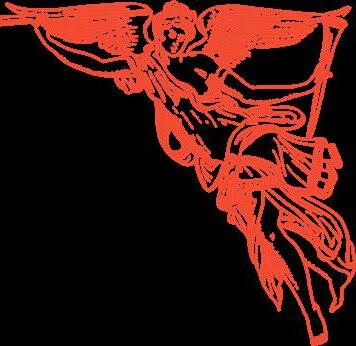
Roux! Roux!
The student magazine!
wrong notes, for it contains every note! Make the stones agile, for, tonight, each one of you is Amphion! Not in order to raise the stern ramparts of seven-gated Thebes, but to erect, as a beacon for all tastes and ideas, a tower ing city with a hundred gates and a million windows, whose destiny shall be, like Babel, to be a hundred times rebuilt, a hundred times destroyed!
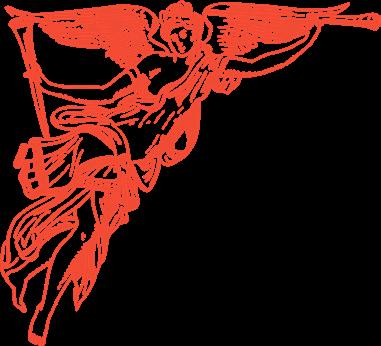
Roux! Roux! Babylonian wedding! Bacchanal! Ship of fools! Vaudeville and Pandemonium! Zaporozhian Cossacks writing to the sultan of Constantinople! Orgiastic Eleusis where hierophants and mystagogues pour suave and calamitous prophecies in acousmaticians’ ears!















Gather around, people, wherever you roam! Make this magazine the lever of Archimedes by which to heave this campus from its moribund axis. Ye dead, over yonder, wake up and join the fanfare! Don’t you know that all dances are featured here, from the makelote to the macabre? And, whether organ or fife, all instru ments are welcome in this gloriously shambolic symphony in which there are no
Roux! Roux! This name, fulgurant like a plane without landing gear, shall resound through the centuries as one of the great killer cries: Eleleleu! Eleleleu! Saint Georg es! Banzai! Geronimo! Yee-haw! Hallali! Olé! Kiai! Hurrah! Viva! Tally-ho! Montjoie! Saint Denis! Hallelujah! Hosanna! Hosanna! Roux! ROUX! ROUX!...
Reader, we kiss thee thousandfold.
by Valère Gaube
17
15 ROUX
MUTUAL RECOGNITION ON CAMPUS
by Samuli Riikonen
We all want to be recognized by others. However, the desire for mutual recognition is not just some “please notice me, senpai” meme stuff. In fact, mu tual recognition as a basic human need constitutes the very essence of our Being. It accompanies other bare necessities of survival such as oxygen, food, water, sleep, and shelter. One could even argue that not only do we have a dire need for mutual rec ognition, but also a natural right to be recognized by others just as much as we have a right for food, water, sleep, reproduction, and so on.
If you are familiar with Maslow’s hierarchy of needs, you may recognize (heh) that recogni tion belongs to the category of esteem that is second from the top of the pyramid. But mutual recognition does so much more than just push your own egoist self-worth forward. Could it be even regarded as the most fundamental need that governs and secures all other needs? Here, I am taking the bold positive stance and emit:

YES, NEEDLESS TO SAY!
But we probably need to say a little something about it, don’t we?
Start by imagining your life as a poor, homeless wan derer with no money, no food, and no roof over your head (not so far from the typical student life, eh?). If you are not mutually recognized by others, you are likely to just Disappear Ineluctably from Existence (yes, DIE). Thus, taking special notice of your neigh bor (not like some stalker) is essential even to our most basic physiological needs. Even things like in somnia could be the effect of poor sociability or an utter lack thereof. Reproduction is also hard without a (recognizing) partner. Thus, with a pinch of salt, all our basic needs that deal with physical survival at the bottom of Maslow’s hierarchy seem to necessitate, at least to some degree, the need for mutual recogni tion. This is especially the case with those notori ous little “poop machines,” who flat out depend on our nurture and care and will not leave you second guessing whether their physical needs are being sat isfied or not.

Psychology says that self-consciousness is depen dent on our social interactions. One does not sim ply become self-conscious without reciprocal acts of
recognition. The need for love and belonging is fulfilled by people who consistently check-in on you and involve you. Friendly relations not only create a strong sense of connection to others, but also expand your perception of reality. By producing the effect of re-cognizing the world through others, mutual recognition is the ultimate cure for depression and solipsism. In re-cognition, you realign yourself in the world with the social other by listening to their story and engaging with their point of view. And perhaps, in the good case, this amounts to a deeper con nection with that person through mutual understanding and empathy. Beefing up your awareness prevents the world from caving in on you and sets you free from the solipsistic prison of your own mind. An exchanging mind amplifies the experience of Being itself.
Now there is an interesting idea about freedom that comes from philosophy. According to it, we obtain freedom through self-conscious ness. It is not even possible to consider your activity as free, if you lack the ability to re flect on it as free activity. Instinct-based behavior belongs to animals, but free dom-based, self-conscious action is exclusive to us humans. If freedom means raised self-awareness, then mutual recognition must in crease our sense of freedom as well.
Let me get my point across in more concrete terms. For example, when you travel in a bus full of strangers, you don’t just sit next to someone, unless there are basical ly no more free two-seaters left. It would be extreme ly weird and awkward to sit next to a person you don’t know, when the rest of the bus seats were empty.
The reason for this phenomenon is that the stranger sit ting on their seat also occupies the seat right next to them. Until mutual recognition has taken place, your sphere of freedom is limited by the sphere of freedom of that stranger on the bus. But as soon as you introduce yourself to them properly and they acknowledge your presence cordially, you are no longer obtrusively inter fering them, but amicably interacting with each other. This way you gain more freedom to act out in the world, because the seat that was previously “taken,” is now freed by mutual recognition
It is also notable how during the peak of COVID-19 pan demic, our freedom was significantly reduced in the ab normal social conditions of the global health measure ments.
16
selfactualisation
esteem needs belonginess and love needs safety needs psychological needs
Perhaps this experience of the loss of freedom is not only explained by having to deal with a limited sphere to act freely, but also by the lack of mutual recognition within that sphere of free activity. As soon as you are not sufficiently recognized by others, you become less free. And the less free you become, the less you feel like a human being, and more like an an imal in a cage. Now obviously, after the hard times, it takes time and common effort to read just back to our normal selves and restore our social wellbeing again. There is no automatic transition to better days at the University either, but we must put in the daily elbow grease for mutual recognition on campus.
Essentially, freedom is the power to act and rec ognize that my actions are free. Freedom is the exercise of our free rational agency that allows us to maximize our potentiality in forms of self-ac tualization. In other words, to be fully free means to be fully yourself. And we can only achieve our freedom together, not in solitude. This is why mu tual recognition is so important, because it is the only way we can act out and truly function to gether in this world as free rational beings. And since the acknowledgment and fulfillment of our human needs requires this capability to free ratio nal agency, Maslow’s hierarchy is exhausted by the one need of mutual recognition to rule them all.


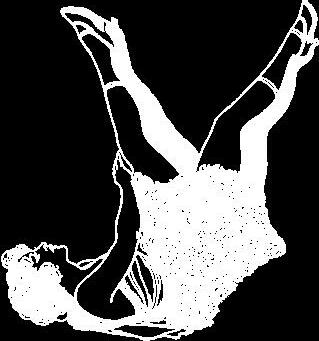

OF BURNING IDEAS DEEP FUR

WANT TO BE RECOGNIZED BY OTHERS?
Send your student submission into Deep Fur nace at rouxmagazine.lu and become a part of ROUX Student Magazine!
-
THE ULTIMATE REFINERY THE ULTIMATE REFINERY OF BURNING IDEAS
NACE
NON-TEXTS-IN-PHILOSO PHY

Philosophy has always been pre occupied with the content and form of the texts its discourse produces, especially since the time it first felt its existence be come threatened by modern em pirical sciences. The perceived threat triggered defensiveness, which — whether it came from honest worry, career envy or vis ceral egotism — has resulted in an academic style that now seems to itself undermine the discourse from within. Form and content are now highly success ful in slowly but steadily cleans ing philosophy of itself.
Hard sciences needed a discourse that sup ports accessibility of data and methodologies, a discourse that ensures these methodologies are founded on firm grounds, a discourse that validates itself through an enforced hierarchy of previous findings, hypotheses and freshly proven theories. Such a discourse also needs and presupposes a uniformed, pragmatically structured writing style where aesthetic qual ities are not only not an objective but are un desirable, i.e. considered noise.
Eliminating this noise serves the purpose of reliability and efficiency but renders texts of the scientific discourse non-texts, and reading them non-reading. These quasi texts although at first resemble texts in their form — they are written in language, they have a title, they are composed of paragraphs, etc. — at a closer look they fail to live up to their definition once they are approached with expectations lifted from non-academic reading experience. In ef fect, one’s reader persona triggered by facing a linearly structured linguistic flow keeps tip ping over whilst perpetually trying to manifest itself through the process of reading. Us, read ers, are not present in academic texts, we are by the discourse’s and by our own design ren dered pure receivers of the author’s intentions, which are in fact accordingly fully exchanged for the intentions of the data.
Content is thus limited to be expressed merely through itself, and not through form, as formas-text by necessity gives its place to a form that cannot express content in itself and by itself. This limited form comes into being by forcing itself to make do without time and sub text; the former a tool of the reading activity, while the latter emerges through time the read er spends on constructing meaning. This new, empty, on its surface purely pragmatic form well delivers its promise, yet by intentionally not interfering with the explicit content of the text, it strangles itself into insignificance. With out time and subtext, the unfledged, limited form becomes what it had hoped to overcome; it itself becomes noise, an obstacle to under standing, negative space displacing potential meanings.
This new noise forces us to constantly suppress our reader potential and keep our reading activity in check. We are
18
making considerable efforts not to access re sources of perception, thus depleting our abil ity to generate the full scope of possible con tent. In the end, we make ourselves victims of a reader persona forced upon us by the noise, by the deaf form, a reader persona whose act is defined by inactivity. The noise disconnects us from creating the text; it is through this noise that the intended efficiency of modern philo sophical writing impedes the text in becoming itself, thus demolishing reading.
Apart from criticism, the above is welcome to be perceived as worry for loss in values. The corpus of philosophical discourse is not the physical extension of data carriers, be it pa per or digital drives, the corpus is equally not
AH, THAT AWFUL NOISE!
Efficiency treats the reading process un desired and a systemic error of the dis course that needs to be dealt with and eliminated, in order for the discourse to survive. The formal measures undertak en are intended to reposition philosophy towards natural sciences, but regardless whether this undertaking is successful or not, the repositioning distances the discourse from where it has originally been embedded, which position — it is deemed here — should be maintained. Philosophy is first and foremost oral and written textual communication, it is by definition a collection of reading pro cesses, which means that the discourse is not data transfer but a part of human intellectual culture, by commitment a purely cultural activity. Thus, the in dividual and hence by academic stan dards ad hoc creation of meaning, i.e. the creation of content including reader and author is not a bug through flaw, but a feature through absolute and desired necessity.
by Zoltan Tajti

extended solely by addition of contingents of letter. The corpus is the constant and individual reading processes, i.e. the sum of synchronous and dia chronous creation of reader personas, which act of creation is the reader persona herself. This reader persona by definition reserves full responsibility of finding content in both content and form by creat ing content through creating herself, which respon sibility cannot be transferred to the creator of the physical text, because the creator of the text read is itself dependent on the reading process, of the reader persona. The creator — the author — is not who types, but a function exhibited by the reader to herself, a function that is continuously created and recreated by the reader throughout the reading pro cess, as part of the reading process. This function, the author, is along with the reader and the unfold ing text the essence of content, it is content itself, because content is identical with and thus insepara ble from the reading process. It is this content that is lost to the deaf form and its noise, and it is this loss that is loss of virtue.

19 ROUX
Is Going to Film School Worth the Trouble?
Ah, film schools – notorious for cultivating partial ity, toxically competitive, and altogether a threat to one’s sanity. Yet, somehow, wannabe-filmmakers would take ridiculous loans, beg from their folks, or both, only to have that very experience of at tending such a cursed institution. Are the advan tages so worthy? Below I will try and answer this question based on my personal experience.
At 18 I was admitted to a film school in Poland. It was the first year they opened the international division, and (I suppose they were in need of peo ple) they took me in despite my being of average ability and possibly too young for this vocation. I managed to graduate. Today I live in Luxembourg, and I am active in the local film industry. In 2022 I was commissioned to direct the fist short docu mentary in this foreign county. In August this year, I completed a radio drama script for which I won a grant. All of this while pursuing a master’s de gree in Philosophy. Things aren’t going too badly for me. Am I to thank film school, though? Let’s break it down.
by sofiya_10billion
*film school students duelling after one of them declared Christopher Nolan the best director
Portfolio


Building a portfolio is one good reason to attend film school. Yet, not every school will be your best ally in this task. Some of my colleagues who stud ied in France, Belgium or the UK told me that their whole class only produced a single film at the very end of the program; while in Poland, besides nu merous études, we were forced to direct a short film at the end of each academic year in order to be permitted to re-enroll. Obviously, when you do something over and over again, you pretty much inevitably get better at it.
NetworkIf you’re prominent and agreeable and passionate about 3 hour long sketches of the Greater Horse shoe Bat’s life – you might be picked out by a re tired documentarian and introduced to a few peo ple who may or may not employ you, and whether they’ll pay you is a whole other story. If you’re just prominent, you’ll need to look after yourself. As a person who had to re-construct their network from scratch upon relocation, it’s doable.
Now, what about your mates, fellow students, are they your network? Yes and no. I met some really special people through the school. I wasn’t able to build friendships so intimate and strong as I did with everyone of those I met on a film set.
As for working together: you were growing up to gether (as artists and craftswomen) - it’s valuable. You have mutual trust, and you can work much faster because you’re used to each other’s rhythm. On the other hand, feelings and emotions do get in the way, if you know what I mean.
Also, it’s very important to NOT confuse your friends and colleagues with your audience and your clients/investors. Mark Harris in his inter view with Film Courage (available on their You Tube channel) validly notices that a filmmaker shouldn’t be promoting content to their friends. Indeed, if you want to make a living, it’s all about what gets views, what sells, what gets funded and what takes awards and not at all about some pale-looking pretentious kid telling you they saw symbolism (that wasn’t there) in your work and it’s ethereal nature touched their miserable soul.
20
At film school, they’ll teach you film theory and film analysis, light ing because that’s an actual science, screenwriting basics, pitching if their approach is grounded in reality, and maybe copyright law. If you want to be a DP or a Sound Engineer, an Editor or a Screen writer I suppose there’s something to be learned. If you want to be a Director, it helps to be educated and well-versed. Can one teach you to direct? On par with being a CEO, being a director is a vague thing. What do these people even do? At my school they said watch ing Kurosawa plus winning festivals is what we needed to do. This misconception begs for a separate article, a book written by some one who isn’t me. For now, I will just say that studying directing and actually directing turned out to be two very different things for me. Independent film directing is a lot about sales and soft skills, and is only later about creativity, originality and being sophisticated.
Higher Education
Some schools but not the others will allow you to ob tain a diploma equivalent to an academic BA or MA degree. My school was of the first type. It proved useful because it made my continuing education further pos sible, as well as it helped me gain legal permission to work in certain foreign countries. Yet, are you planning on ever moving abroad, doing a PhD in Philosophy or teaching? If not, at the end of the day, paper is paper, and not even once I was asked to show it before being hired for a job. It was always about portfolio, referenc es and previous experiences.
FINAL CUT
succesful director’stool



The Answer
All in all, going to film school served my purposes, and FOR ME it was worth it. Still, if you feel depressed, if the teachers are bullying you (yes, that happens), if the school’s ideology or approach are in conflict with your beliefs or needs and you feel like you’re not lack ing self-discipline to keep expanding your portfolio on your own – quit, or don’t go at all. There are other methods to enter the film business. We shall talk about them in detail in my succeeding articles.
P. S.: Already after I finished writing this article I met Govinda Van Maele, a Luxembourgish film direc tor and one of the founders of Filmreakter a.s.b.l. His thoughts on the subject really resonated with me. “Going to a good film school is definitely worth it” said Govinda. “You get access to equipment and you meet people eager to work on your projects for free. You can experiment together without worrying too much about being judged or failing, and this way you'll eventually discover your own way of telling stories. On the other hand, if the school imposes a rigid philosophy on you instead of encouraging what makes you original, then you might be better off finding your own way.
Unfortunately there are also quite a few bad film schools out there”.
Skills
this one makes a killer espresso
21
ROUX
After the well-received Resident Evil
7, the long-running gaming franchise seemed as if it had been brought back from the dead with everyone talking about it.



What many liked about Resident Evil 7, that is its survival horror gameplay and genuinely creepy ar eas, was what made Resident Evil popular in the early 2000s and left many fans nostalgic about, especially after the fact that the sixth installment of Resident Evil was nothing more than a bland ac tion zombie shooter. Thankfully, Capcom heeded the call to going back to survival horror and re-released Resident Evil 2 in 2019. And what an ambitious remake it is! Trying to stay as faithful to the original; enemies, areas, puzzles and most of the story were kept the same. Except, this time the charm of Resident Evil 2 can be experienced with completely new graph ics, a modern camera perspective and, of course, modern gameplay.

A fast-spreading virus has tak en over Raccoon City, possibly endangering the entire world. Once you have been infected with the virus, there is no com ing back. You will turn into an aggressive zombie that is try ing to turn everyone that is not infected yet. To stop the spread of the virus and to possibly save the entire world from this infection, Leon Scott Kennedy and Claire Redfield are trying everything they can to save Racoon City, while putting their own lives at risk.
In Raccoon City Leon and Claire are trapped in a police station, facing a diversity of difficulties. In fact, Resident Evil 2 Remake is not simply an easy shooter. Every move you make will have an impact on the game. At the beginning of the game you can choose between Leon’s or Claire’s side of the story. Capcom has done a great job in building up tension and pressure, due to a dark luminosity, different riddles, never knowing who or what you will face around the corner, some slight jump scares, different opponents, but most importantly Mr. X following you throughout the game. Through dark rooms, Leon and Claire have to search the whole police station with their torch in hand, encountering not only scary zombies but also dogs and lickers.
Munition has to be used wise ly, very precise shots are needed, since there is not much ammunition throughout the game. By searching the police station, to find the ori gin of and a way to stop the spread of the virus, Leon and Claire need to be careful that they do not cause too much noise, or Mr. X will know where they hide.
22
These characteristics constitute great points for the game. However, the game can be quite difficult and it is not unusual to get stuck. This is the case, since there are so many rooms in the police station, where in one end of the map a code is needed, which can only be found on the other side of the map. It can be quite confusing what to do with all the information but also to find all the information and to connect it correctly. Furthermore, besides it being difficult to keep track, there is not much munition throughout the game, making it difficult to face every opponent and it might be the case to die of ten.
Overall, it is a great, suspenseful, strategic and scary game that takes one on an adventure with Leon and Claire against the spread of a virus, trying to save the entire world from a pandemic.











 by Jennifer Jacquemin
by Jennifer Jacquemin
Mr. X, a tall, scary man with very loud steps, will put you in distress. You need to escape him, however you are not allowed to make too much noise or he will find you, but you should not be too slow either, or he will catch you. However, in safe rooms you can rest and escape him
ROUX
23
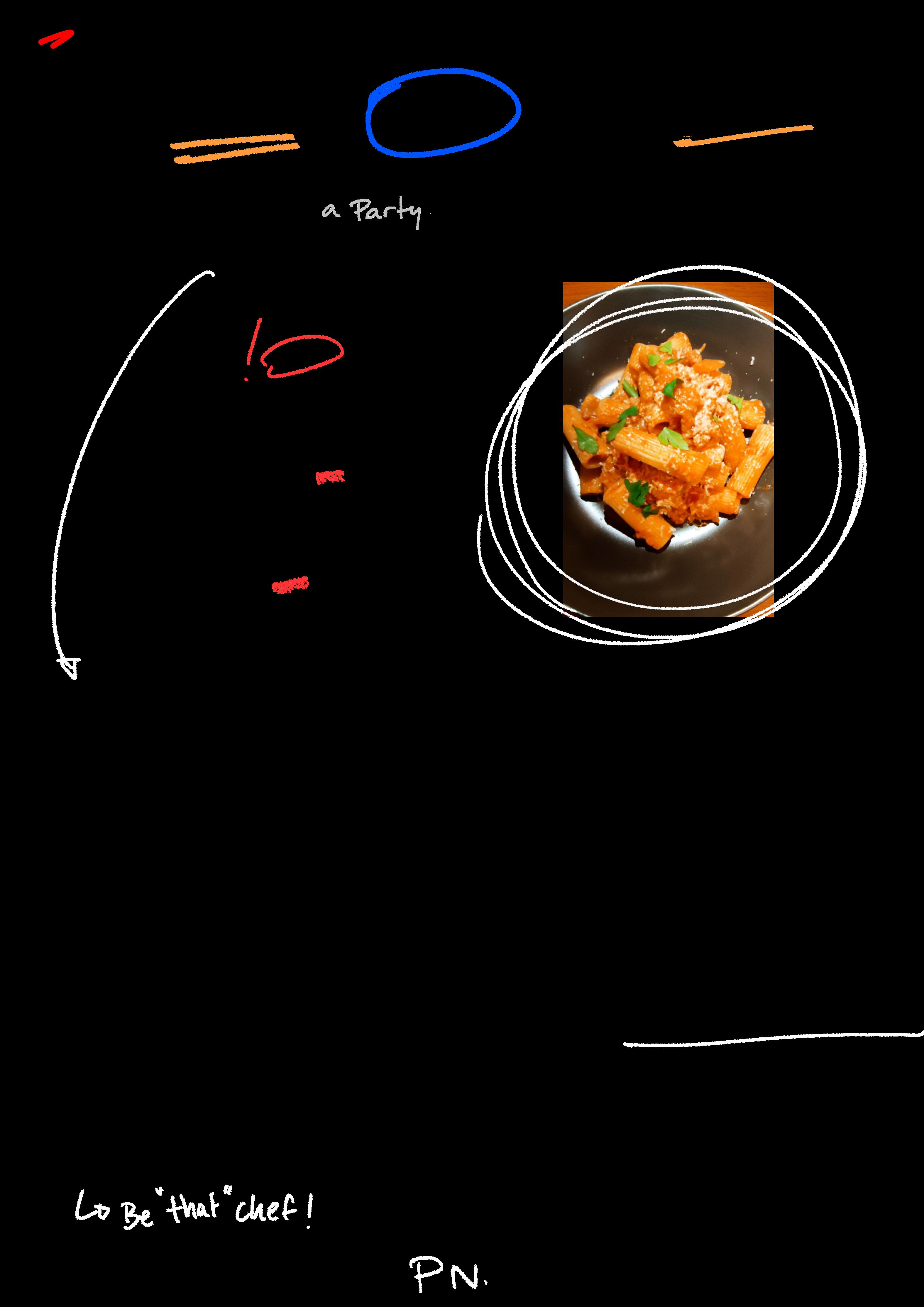
Penne à la Vodka inspired Pasta for 2! Ingredients: 300g Rigatoni or Penne 1 medium onion 2 cloves of garlic 50g Pancetta (can be substituted with bacon) 100ml heavy cream 1 glass of white whine or vodka 1 can of pealed tomatoes Olive oil Salt and pepper Optional: Parmesan cheese, red pepper flakes 3,50€ per serving Cooking time: 20 minutes 9 Ingredients wine or vodka peeled tomatoes 24
WINE OR VODKA

ROUX 25
Virgile, Bucoliques, 2ème églogue Traduction

Le pâtre Corydon, pour le bel Alexis, Délices de son maître, ardait d’amour ; aussi Était-il sans espoir. Dans l’épais bois de hêtres




Il allait se cacher à l’abri des yeux traîtres, Et laissait s’épancher, fébrile et exalté, Des complaintes sans art et force insanités :

« Tu dédaignes mon chant, Alexis, cruel cœur ? Seras-tu sans pitié ? Veux-tu donc que je meure ? A cette heure du jour où le soleil est roi, Le bétail apprécie dans l’ombre un peu de froid ; Les buissons épineux abritent les lézards ; Avec le serpolet, s’aidant de tout son art,
Pour les moissonneurs las de chaleur accablante, Pilonne Thestylis des herbes odorantes ; Mais aux soupirs songeurs que je pousse en cherchant Ta présence en tous lieux, ne répond que le chant De la cigale rauque et de l’arbuste sec. N’étais-je plus heureux quand je souffrais la grecque Amaryllis, encline à de tristes furies, Ou Ménalque le fier, qui jamais ne sourit, Noir de peau et d’humeur autant que tu es clair ?



La fleur sombre est cueillie, la blanche tombe à terre : Garde-toi, bel enfant, d’être trop orgueilleux !
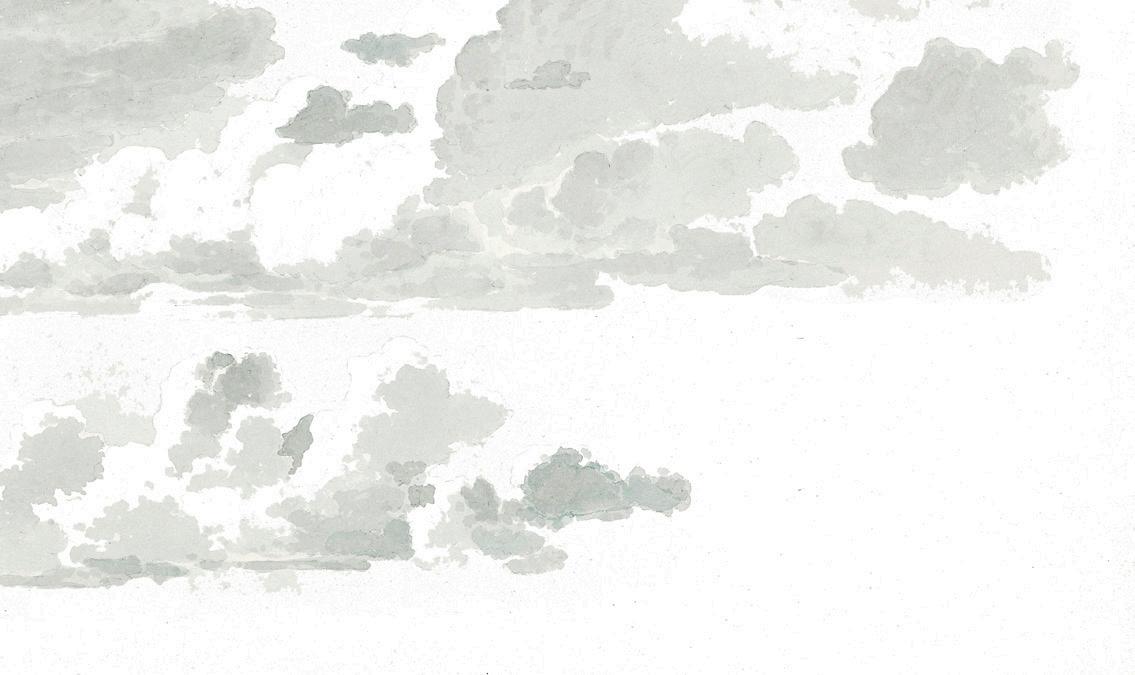

Tu es dur, Alexis. Je ne suis, à tes yeux, Digne d’être connu : ni moi, ni mes laitages, Que j’ai en quantités, ni les vastes pacages Où paissent mes brebis – j’en possède un millier, Qui en pays sicule, avec deux cents béliers, Gambade librement. En été, en hiver, Jamais le bon lait frais ne manque dans mon verre. Je connais les chansons de bouvier qu’a chantées Amphion sur le mont Aracynthe en Actée.
Je suis svelte et bien mis : j’ai vu, dans une crique, Mon image dans l’eau ; je la crois véridique Et ne crains point Daphnis – je te prends pour témoin !
« Puisses-tu seulement venir, un jour au moins, Dans mon humble chaumière et ma campagne fauve : Nous chasserons le cerf et, là-bas, dans les mauves, Confiant nos troupeaux à nos chiens de berger, Nous irons, comme Pan, siffler dans les vergers. Pan est l’ami divin des pâtres et des chèvres, Qui le premier au monde approcha de ses lèvres Des roseaux attachés, inégalement longs : En naquit la syrinx, chantant dans le vallon. Tu ne te plaindras point d’apprendre mes cantiques :
Image by rawpixel.com
26
Amyntas se vendrait pour savoir mes techniques ! Sur ma flûte à sept trous mon jeu va t’étonner. Damœtas sur son lit de mort me l’a donnée. Il dit : “En ta personne, elle a son nouveau maître”. On voyait d’Amyntas la jalousie paraître. Ce fat ! A part cela, près d’un pic escarpé, Dans un ravin peu sûr où j’ai cru déraper, J’ai trouvé deux chevreaux, dont le soyeux pelage Était taché de blanc, signe de leur jeune âge. Ils ne sont pas sevrés. Je les garde pour toi. Mais Thestylis voudrait les prendre sous son toit – Et je la laisserai, puisque tu n’en as cure...

« Viens ici, bel enfant ! Les nymphes te procurent Des lys à pleins paniers ; la naïade, en dansant, Marie le beau narcisse à l’aneth encensant, Le coquelicot vif à la violette pâle, Les tresse tous ensemble en collier ségétal ; De cassies, de soucis et d’autres fleurs des prés, Elle te confectionne un bouquet diapré. Moi, je te choisirai des noix (Amaryllis, Du temps de nos amours, en faisait ses délices), Des châtaignes, des coings blancs et molletonnés ; De myrte et de laurier tu seras couronné ; Je te ferai goûter des prunes dans leur pruine : Afin de t’obliger, vois comme je me ruine !
« Oh, rustre ! Ce n’est pas en le couvrant de dons Qu’Alexis t’aimera. Qui plus est, Corydon À ce jeu ne fait pas le poids contre Iollas. J’ai causé mon malheur ! J’ai fait venir, hélas ! La harde dans la source où je puisais de l’eau, Et laissé calciner les fleurs de mon enclos. Tu me fuis, insensé ? Tu me trouves rustique ? La sylve est le foyer de maints héros mythiques : Dardanus et Pâris. Vive Pallas auprès De ses fières cités ; j’aime mieux les forêts. La lionne tue le loup, qui dévore l’agnelle, Qui poursuit de sa faim la tendre herbe nouvelle, Et moi, j’ai faim de toi : chacun ses appétits, Alexis. Mais déjà la nuit s’appesantit Sur les champs, les taureaux rentrent à l’abreuvoir... Et je brûle d’amour, espérant sans espoir.
« Corydon, Corydon, ta volonté fléchit ! Ta vigne de tes soins ne s’est point affranchie. Que ne fais-tu plutôt, à défaut d’autre chose, Quelque ouvrage prenant dont le besoin s’impose ? De l’osier à tresser, un orme à tailler ras... Oublie cet Alexis : un autre t’aimera. »

ROUX 27
Traduit du latin par Valère Gaube
What the fuck?
A truck
Of love Has crashed into my car. I don’t have no car, Not even a driving license. Are

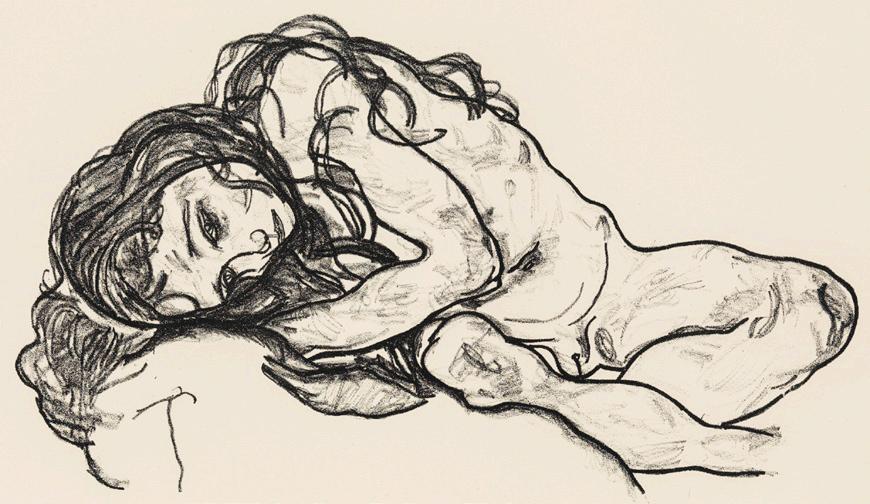
You enjoying the torture? Nurture The idea. Dear, You are trembling, You are a resemblance Of our past. You lust For the genuine happiness In January. Do you have any memory Of that night Stroll?
The HighSchool Sweatshirt you were wearing. Daring, High On md Lost your id, Lost my passportWhat a bad person you are!

You know, I am thinking it, too. Because you’re thinking it, too.
For a Better Future
You’re blushing. Those flashing Eyes, Your eyes. When everyone dies I demand being buried next to you, Obviously a tribute To the ground you shook off The ashes on. Far beyond the norm I’m trivial and I’m faint. If I could paint, (Yet I cannot paint) But if I could paint Then I would paint you in violette.
28
Oh my, To be honest I
Never demand anything really. So, actually I said nothing.
It was getting Chilly It was almost dawn.
It was time to go Back. You alone, I alone. Tocryandtomasturbate. You’re only a phantom. Fate Is sometimes Heartless.

It’s all for the better, though, For a better future.
by sofiya_10billion
ROUX
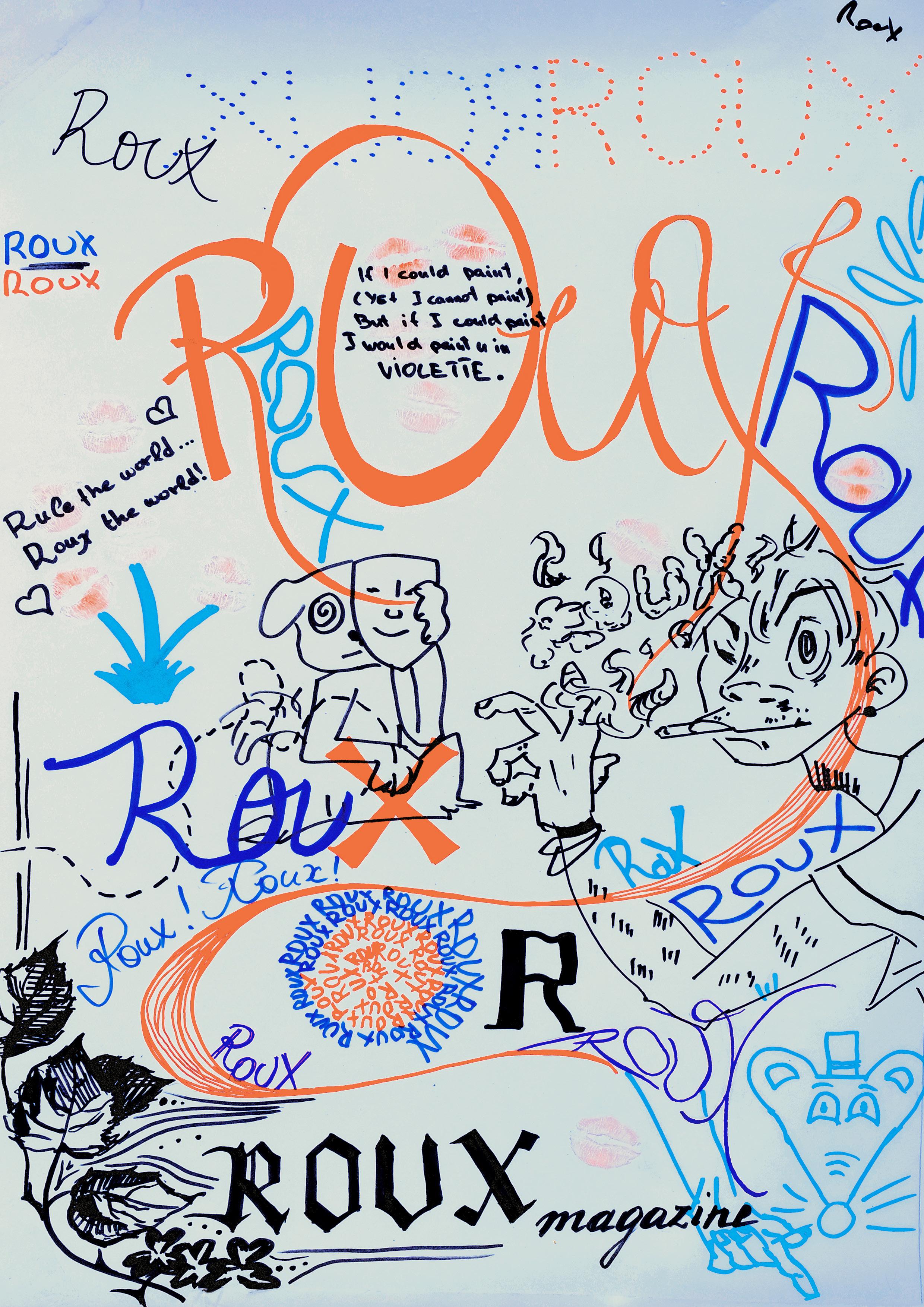


































































 by Jennifer Jacquemin
by Jennifer Jacquemin



















